Oscar Pistorius timeline: From Paralympian to prison for the murder of Reeva Steenkamp
The South African former athlete has been released on parole to finish his sentence
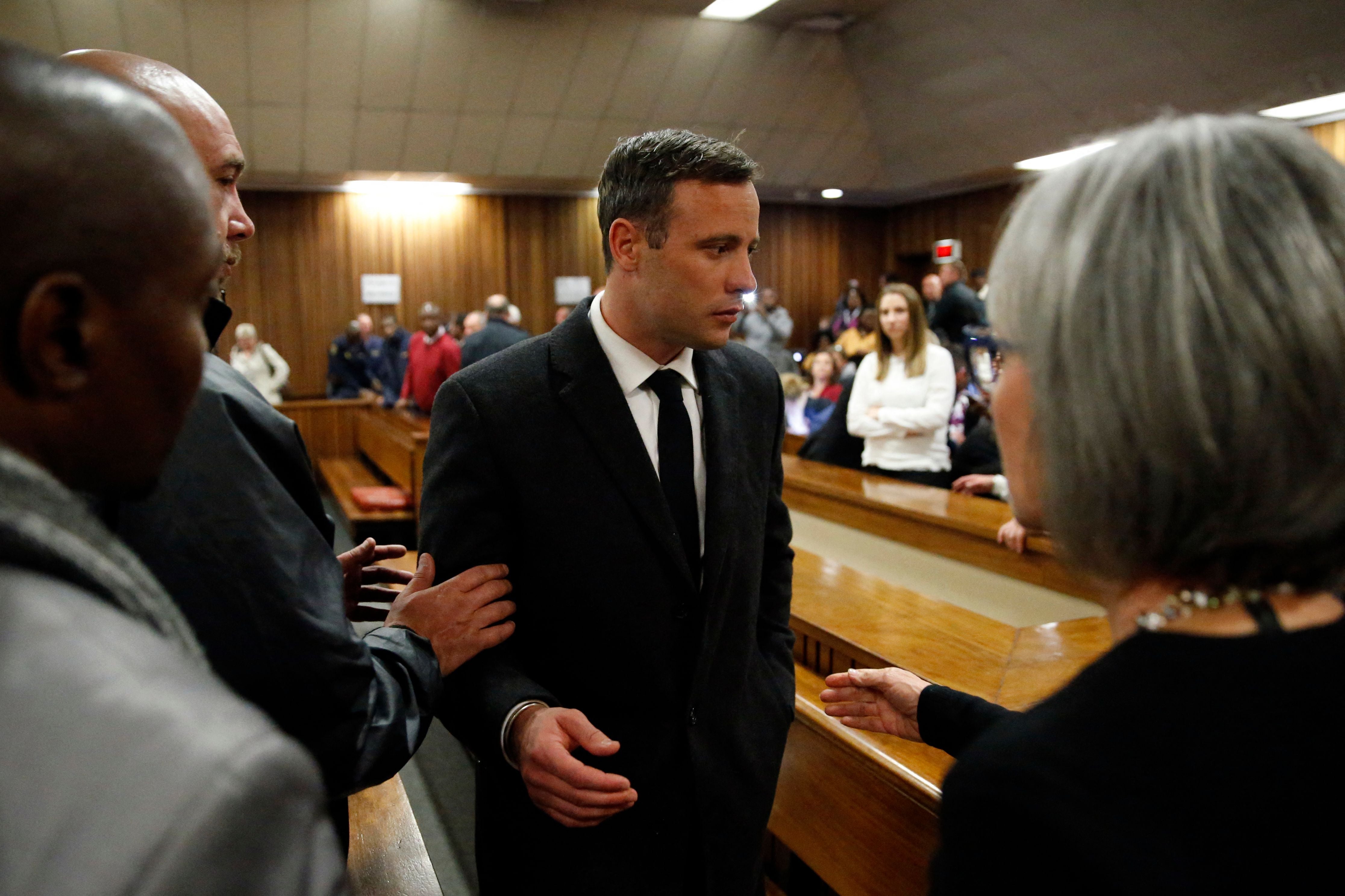
Oscar Pistorius has been released from prison nearly 11 years after he killed his girlfriend Reeva Steenkamp.
The former Paralympian went from one of the world’s most celebrated athletes to criminal, ultimately being convicted of Ms Steenkamp’s murder.
Here is a timeline of how we got to this point:
22 November 1986
Oscar Pistorius is born in Johannesburg, the third largest city in South Africa. Born without fibulas, he has both legs amputated below the knees a month before his first birthday.
January 2004
After suffering a knee injury while playing rugby union, the now 18-year old is introduced to running while undergoing rehabilitation at a performance centre in the South African capital.
September 2004
Just seven months after being given his first pair of running prosthetics, Pistorius wins the Athens Paralympic 200m final in a world record time of 21.97. He won despite falling over in the preliminary round.
He also returned home with a bronze medal in the 100m. By that time, he was in the front pages across the world.
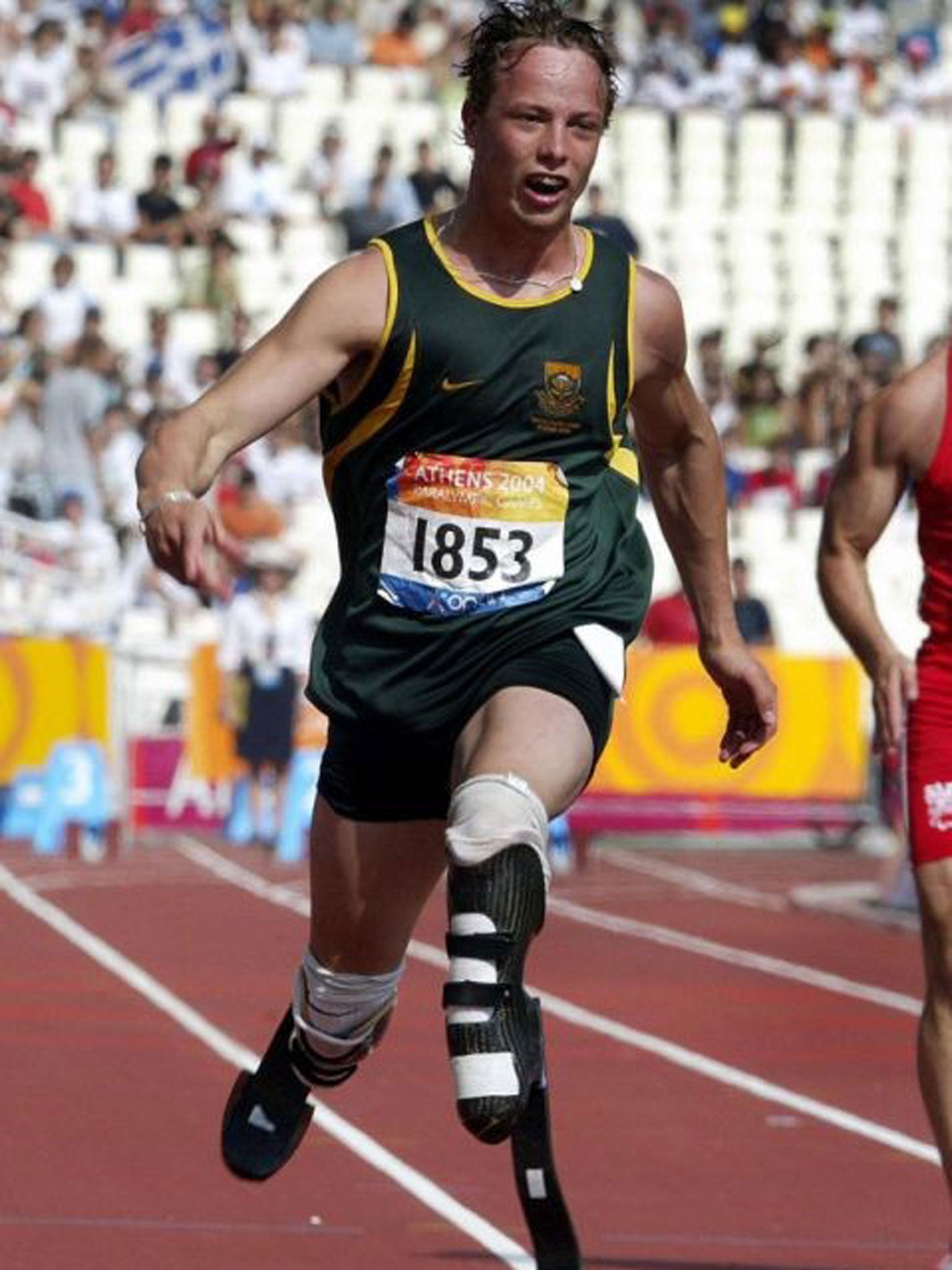
March 2005
He competes for the first time against able-bodied athletes, finishing sixth in the 400m final at the South African Championships in a time that would have broken the world record in his Paralympic category.
May 2006
A year later, Pistorius cements his status as “the fastest man on no legs”, winning the 100m, 200m and 400m events at the 2006 Paralympic World Cup.
September 2008
At the Beijing Paralympics, Pistorius repeats his World Cup feat, becoming the first athlete in history to win gold in all three sprinting events in the T43/44 category. He breaks two Paralympic records and sets a world record for the 400m in 47.49s.
August 2011
After qualifying with a personal best in the 400m earlier in the year, Pistorius competes in the South Korean World Championships on the South African team, winning a historic silver medal having run in the 4x400 relay. He becomes the first Paralympic athlete to win a World Championship medal.
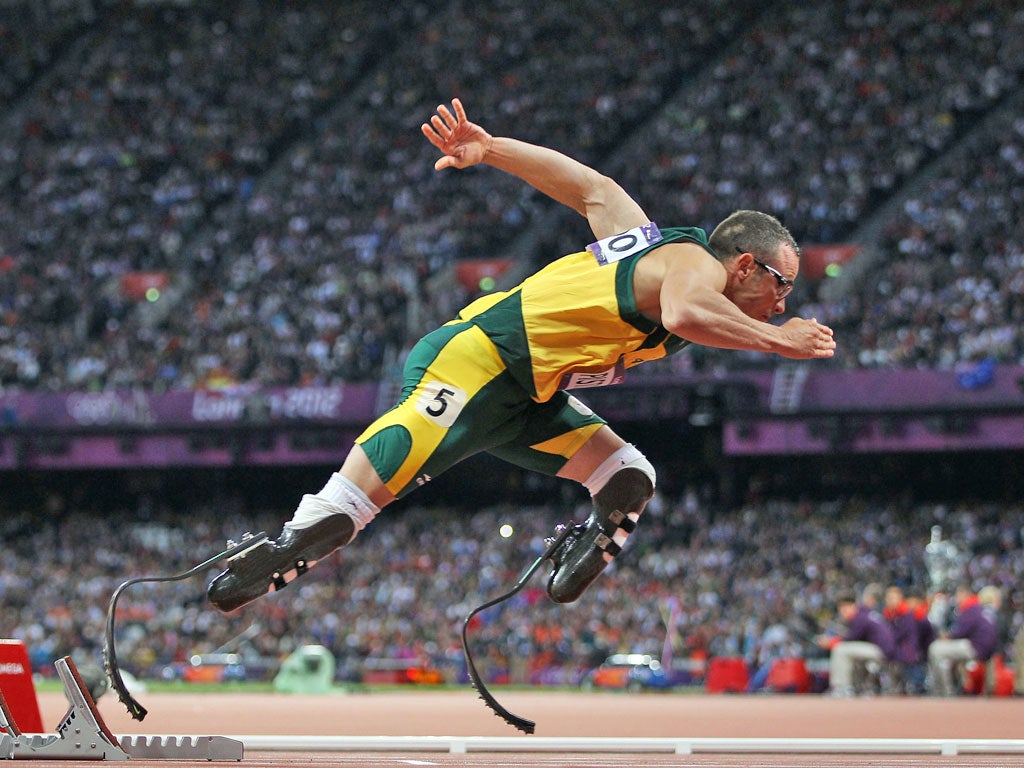
August 2012
Competes in the London Olympics in the individual 400m event, finishing eight in the semi final but becoming the first Paralympic athlete to compete in the Olympics.
The following months, he wins gold in the T43/44 400m in the Paralympic games and silver in the 200m.
November 2012
Pistorious begins dating 29-year-old model and law graduate Reeva Steenkamp, a match local media compares to Victoria and David Beckham
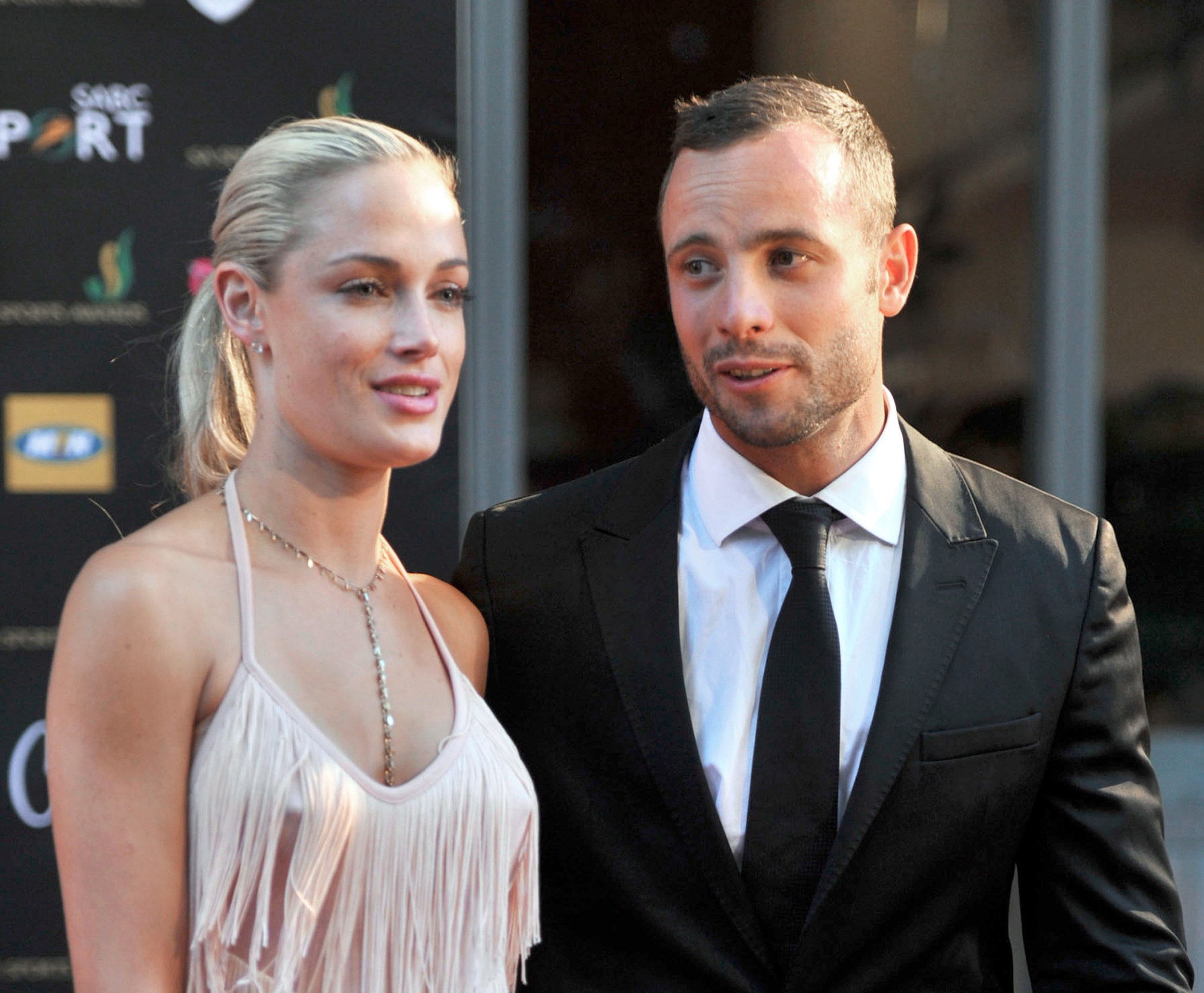
14 February 2013
Pistorius fires four shots through a locked bathroom door at his Pretoria home on Valentines Day, killing Ms Steenkamp.
15 February 2013
Pistorius is charged with murder.
3 March 2014
The murder trial commences on in the High Court in Pretoria. Pistorius denies murder charge, saying he believed an intruder had broken into his house and was in his bathroom when he fired.
7 April 2014
Pistorius takes to the stand. The next day, he breaks down in tears and the court adjourns early after the defence say Pistorius is too emotional to continue his testimony.
13 May 2014
Prosecutors make a formal application to have Pistorius sent to a mental health hospital for 30 days for evaluation. It came after defence witness and forensic psychiatrist Dr Merryll Vorster said Pistorius suffered from generalised anxiety disorder at the time of the shooting.
30 June 2014
The trial resumes. The court is told that the athlete did not have a mental health issue when he shot Steenkamp.
11 September 2014
Pistorius is found not guilty of pre-meditated and second-degree murder. Judge Thokozile Masipa describes the athlete's actions as "negligent".
12 September 2014
Pistorius is found guilty of culpable homicide by Judge Masipa.
21 October 2014
Pistorius handed five years in prison, a sentence he begins the next day.
October 2015
Pistorius is released to house arrest to serve the rest of his sentence at his uncle’s home in a wealthy suburb of Pretoria.
Two months earlier, South Africa’s justice minister had blocked Pistorius’ expected release on parole after serving 10 months of his five-year sentence.
December 2015
The Supreme Court of Appeal overturns the lower judge’s ruling and finds Pistorius guilty of murder, arguing he should have foreseen the possibility of killing someone when he fired the shots through the locked bathroom door at his home.
Justice Eric Leach said Pistorius did have the requisite legal intention to be found guilty of murder. “In these circumstances, I have no doubt that in firing the fatal shots the accused must have foreseen that whoever was behind the toilet door might die, but reconciled with that event occurring, and gambled with that person’s life,” he said.
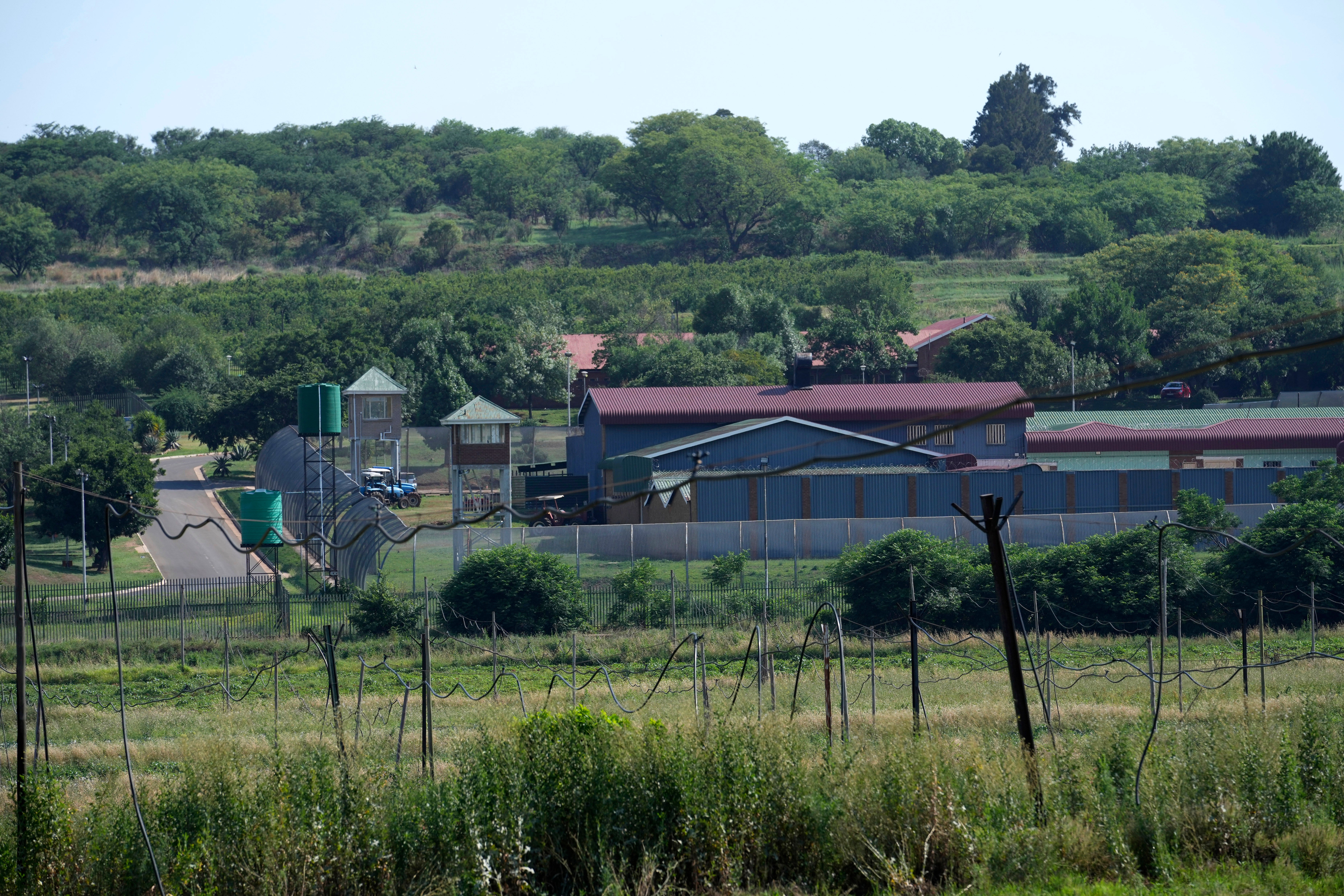
July 2016
Pistorius is sent back to jail for six years, less than half the 15-year minimum term sought by prosecutors.
He is initially sent to the notorious Kgosi Mampuru II maximum security prison in Pretoria, home to some of South Africa’s most dangerous criminals, though he is kept in the hospital wing.
He would later be moved to Atteridgeville prison in Johannesburg.
November 2017
The Supreme Court of Appeal more than doubles Pistorius’ murder sentence to 13 years and five months, accepting state prosecutors’ argument that the original jail term was “shockingly lenient”.
June 2022
Pistorius meets Steenkamp’s father as part of a victim-offender dialogue — an integral part of South Africa’s restorative justice programme that brings parties affected by a crime together in a bid to achieve closure.
Few details were made public about the meeting and Steenkamp’s father dies the following year.
March 2023
Pistorius has a parole hearing after serving half his 13-year sentence.
Reeva Steenkamp’s mother June says in a statement before the parole hearing for Pistorius, now 37 years old, that she was not convinced he had been rehabilitated.
But she added that she had forgiven him “long ago as I knew most certainly that I would not be able to survive if I had to cling to my anger”.
His parole is denied. The prison authorities claim he did not serve the minimum detention period required.
October 2023
The Constitutional Court overturn the original decision on his parole. They say Pistorius completed half his sentence by March 21, 2023, making him eligible for parole.
November 2023
The Department of Correctional Services sets 5 January 2024 as Pistorius’ release date on parole.
5 January, 2024
Pistorius is released on parole. He will be under the supervision of South Africa's Department of Correctional Services (DCS), facing a number of conditions, until his sentence expires in December 2029.
Bookmark popover
Removed from bookmarks